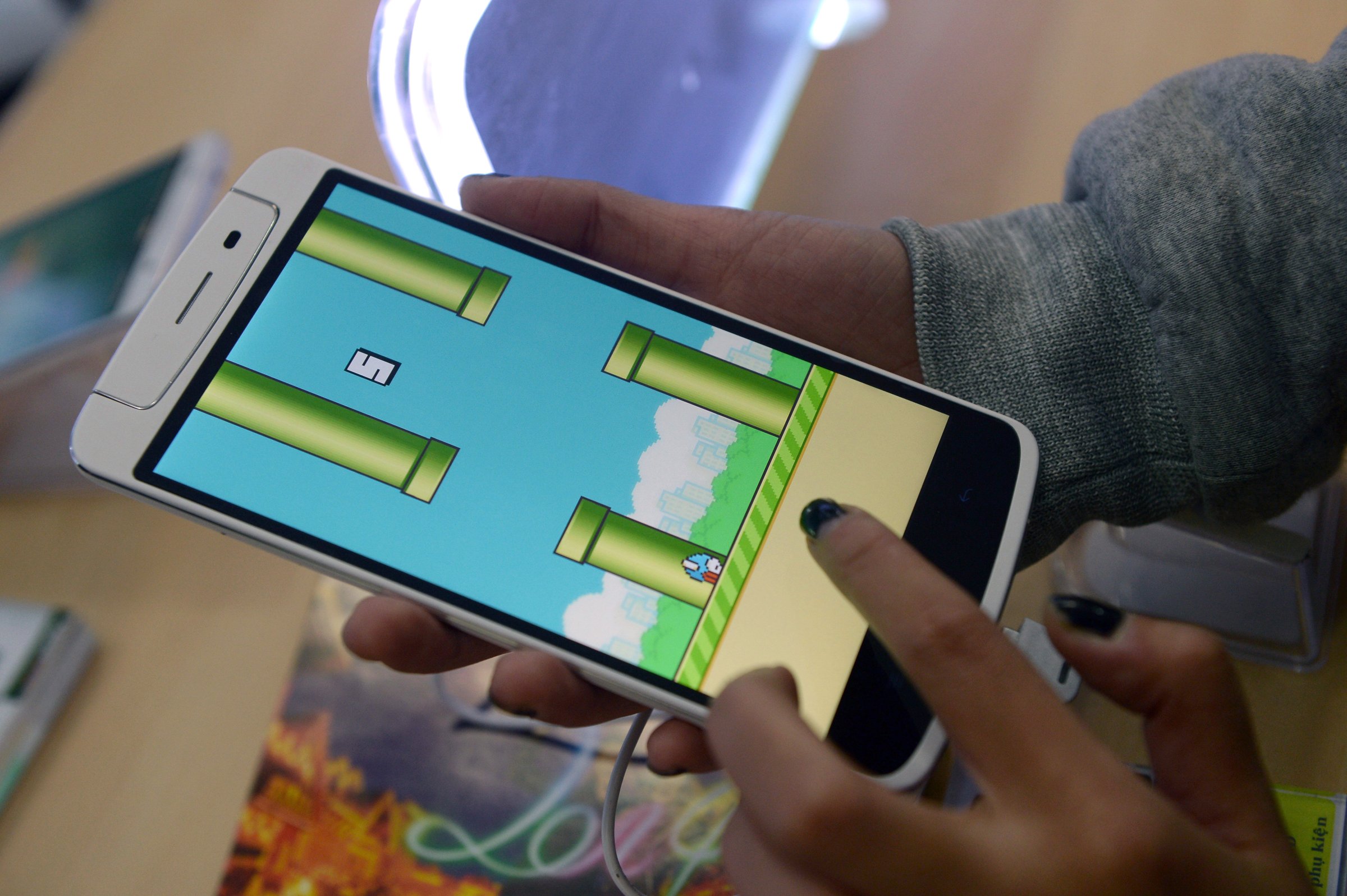
On Saturday, Flappy Bird developer Dong Nguyen disappointed millions when he announced he would be deleting the astronomically popular mobile game. Twenty-two hours later, he did just that.
Nguyen’s game was killing it. Flappy Bird was downloaded more than 50 million times and was raking in $50,000 a day from ads, according to The Verge. But the little-known Vietnamese indie game developer started to hint that things were about to blow up. There’s some speculation that legal issues were brewing because the game had many similarities to Nintendo’s Super Mario Bros, though Nguyen denies this.
But Nguyen’s Twitter feed suggests something more personal may have been going on. Is it possible that Flappy Bird–and subsequently Nguyen–got too famous, too fast? He tweets:
“In a quick rise to fame, there are added demands to your time and attention. If the spotlight is causing a lot of stress and anxiety and not allowing a person to function, getting rid of it can alleviate some of that negativity,” says Sian L. Beilock, a University of Chicago psychologist and author of the book Choke. Not to mention, social media has the ability to quickly elevate someone and plop them into the middle of the national conversation in a way that wasn’t possible in the past.
Often, what psychologists refer to as “Impostor Syndrome” comes into play. Individuals cannot process their successes or feel like they are not up for the attention, and instead feel like they’re an impostor in the situation. The syndrome creates anxiety over a person’s ability to succeed.
Beilock’s research shows that the all-eyes-on-you phenomenon and the impostor syndrome can make people self-conscious and even paralyzed. “These worries can be taxing and cognitively demanding. They take up resources that could otherwise focus on problems. It’s like when an athlete thinks too much about the little things and falls on their face,” she says.
It has happened plenty of times before. Even Olympic athletes choke under the pressure, like Lolo Jones who clipped a hurdle at the Beijing Olympics and came in in seventh place instead of first. And many times, under pressure and stardom, people retreat. Comedian Dave Chapelle unexpectedly left during the production of Chappelle’s Show for a trip to South Africa. Former NFL player Barry Sanders retired from the Detroit Lions at the peak of his success. Three-time Oscar winner for Best Actor Daniel Day-Lewis has taken multiple breaks from acting, some as long as five years.
“What makes people rise to the challenge or shy away from it is the billion-dollar question,” says Beilock. For Nguyen, it’s possible it was too much, too fast–for the game, and for himself.
Nguyen did not respond to requests for comment.
More Must-Reads from TIME
- Cybersecurity Experts Are Sounding the Alarm on DOGE
- Meet the 2025 Women of the Year
- The Harsh Truth About Disability Inclusion
- Why Do More Young Adults Have Cancer?
- Colman Domingo Leads With Radical Love
- How to Get Better at Doing Things Alone
- Michelle Zauner Stares Down the Darkness
Contact us at letters@time.com